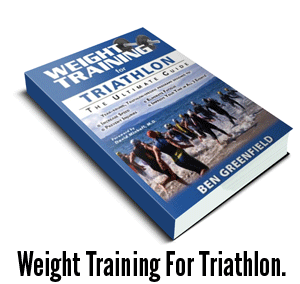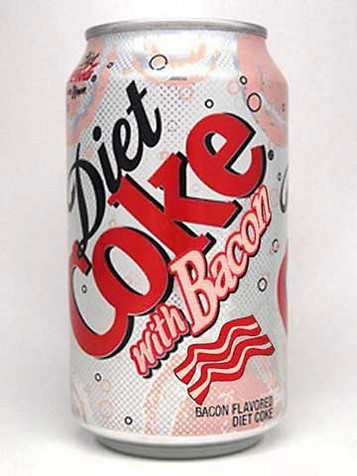December 14, 2011
Click here for the full written transcript of this podcast episode.
Do you have a future podcast question for Ben? click Ask a Podcast Question at the bottom of this page, Skype to “pacificfit” or scroll down on this post to access the free “Ask Ben” form…
In this December 14, 2011 free audio episode: which diet is the best diet, cardio and muscle loss, outdoor winter training, preparing grains, Dr. Weil's Pyramid, getting lean, antibiotics, training for a climbing expedition, what is super compensation, “cultured” vitamins, rapid weight fluctuations, good leg workouts, and electromagnetic radiation.
Remember, if you have any trouble listening, downloading, or transferring to your mp3 player just e-mail [email protected] And don't forget to leave the podcast a ranking in iTunes – it only takes 2 minutes of your time and helps grow our healthy community! Just click here to go to our iTunes page and leave feedback.
—————————————————–
Special Announcements:
Lightning Fast Transition Secrets – On Thursday, December 15th, at 6pm Ben is teaching a USA Triathlon webinar, in which you’ll learn how to transition like a pro triathlete, even if you’re just getting started! You’ll learn tips and tricks to shave seconds and even minutes off your swim-to-bike and bike-to-run transition times. You’ll also have ample opportunity to ask your questions about faster transitions. Here’s the link to register for “Lightning Fast Transition Secrets”.
Tuesday, December 20: Ben's 30th Birthday! Be sure to be following Ben on Twitter (www.twitter.com/bengreenfield) and Facebook (www.facebook.com/bgfitness) because he always gives away big gifts on his birthday to fans and followers, and the 30th should be no exception!
 Weight Training For Triathlon – a cutting-edge, step-by-step gym workout guide to developing swim, bike and run power and is now available on: Barnes & Noble Nook, Amazon Kindle and iTunes.
Weight Training For Triathlon – a cutting-edge, step-by-step gym workout guide to developing swim, bike and run power and is now available on: Barnes & Noble Nook, Amazon Kindle and iTunes.
The BenGreenfieldFitness gear and clothing store – is now LIVE! Click here to get triathlon uniforms, tech pants and coat, hats and more all emblazoned with Ben Greenfield's “Fire & Water” tattoo!
—————————————————–
News Flashes:
Want to get news flashes from Ben, right when they're fresh off the press? Follow Ben Greenfield on Twitter at: www.twitter.com/bengreenfield
As I mention in my Fueling Myths book, glycemic index doesn’t matter before exercise.
Good article about Running Rules You Should Break.
It appears that even just a little intensity in your workout helps more than previously believed.
So…maybe marathon doesn’t suppress immune system…just allergies?
Before you take this as reason to begin “grazing”, notice that it is 3 meals & 2 snacks, not “6-10 a day”.
—————————————————–
Listener Q&As:
Audio Question from Patrick:
Does long cardio really burn off muscle?
In my response to Patrick, I mention these amino acids.
————————-
Erling Tenvik asks:
The winter is coming, and i was wondering if its bad to do hard outdoor training in cold temperatures (for the lungs). Last year in Oslo (Norway) it was -20 for a long period.
I like the new structure of the podcast :)
In my response to Erling, I reference this podcast with Ray Cronise and Tim Ferris. Brock also mentioned “wind proof undies“.
————————-
Andrei asks:
Hi Ben,
I heard you a few times talking about soaked and sprouted grains. So what is the proper way to do it? How do you sprout grains, quinoa, etc?
Thank you!
In my response to Andrei, I reference a multi-part video on soaking and sprouting that Jessa Greenfield presented inside the Ben Greenfield Fitness Inner Circle at www.bengreenfieldfitness.com/innercircle and also the cookbook Nourishing Traditions
————————-
Ron asks:
What do you think of Dr. Weil's food pyramid?
————————-
David Asks:
Ben,
I’m a triathlete and focus on the 70.3 distance and moving to a full next season. I want to lean up, get stronger and be in a solid position for next season. I eat ok but there is a lot of room for improvement in my diet. Which would allow me to drop my body fat but still allow muscle mass growth over the off season and keep that muscle mass as I start racing next season.
What diet would you recommend? Start with low carb diet and then convert over to Rev Diet (http://www.revdiet.com) ? Other suggestions?
Keep up the Podcasts!
Thanks
David
————————-
Questions from Jim and Dan about antibiotics:
Jim asks:
Ben,
I know you recently went through having to use antibiotics for an infection. I have to take cipro soon for an intestinal infection. Heard it was nasty and you cant train because it affects your tendons and ligaments (especially your Achilles tendon) would you know how long I should wait before resuming training?
…and Dan asks…
Hey Ben,
I was wondering if you have any knowledge on Fluoroquinolone antibiotics (Avelox, Cipro, Levaquin, Floxin, etc), and the damage they can cause.
In April 2011 I had a sinus infection, I was prescribed Avelox, and right away I started having knee pain while running and biking. It got worse and worse, and in June I could barely walk w/o pain.
I went to a Doctor and had blood tests done, and was told I was completely fine.
My Nutritionist felt it was Leaky Gut and I changed my diet accordingly and felt better…. But over the course of the summer I have experienced many issues ranging from muscle spasms, itchy skin, rashes (especially after swimming in chlorinated pools and eating certain foods), muscle aches, tightness in tendons/muscles, depression (obviously), no energy, the list goes on.
I have talked to a Rheumatologist and a Naturopath and both agree that I have Leaky Gut, but they were not aware of damages from the Fluoroquinolones. The Rheumatologist prescribed me a strong NSAID so I can workout, yet that would bother my Leaky Gut even further and I have no intention of taking it.
So far doing a mix of the Paleo Diet and the Candida Diet is helping… When I rest up and feel better, I try to do a light workout and then get knocked right back down, with pains later that day. It takes me three times longer to recover after the easiest of workouts.
Can you give me any advice or direction? I feel as if I went from a super healthy and fit 35 year who was into Triathlons, to someone that can barely move without worrying about snapping something.
In my response I reference this article I wrote on How To Limit The Damage Caused by Antibiotics.
——————————————
Kai asks:
The three most discussed options to the Standard American Diet are Vegan, Zone, and Low Carb. Have any studies been done which objectively compare the health benefits of these three intake approaches? With your recent release of the low carb diet for triathletes, what is your opinion on the Zone diet?
In my response, I mention http://www.lowcarbtriathlete.com
————————-
John asks:
I am preparing for a mountain climbing expedition this Spring. Expedition climbing differs from other endurance sports, such as triathlons, in a number of ways:
– An expedition may last two months or more.
– The summit day may last 12 hours or more with only short rest breaks.
– The aerobic system is taxed by high altitude.
Average intensity is less than race type sports, but peak intensity is just as high.
You need good full-body strength to carry a heavy backpack while performing climbing moves (balance and flexibility).
How would you train for this? What specific workouts would you do? Thanks for your help.
In my response to John, I reference https://www.youtube.com/bengreenfieldfitness and high knee step-ups, single leg squats, hip hikes, lateral leg raises, torso twists, woodchoppers, running man row, and standing row.
————————-
Jens asks:
I learned about Super Compensation decades ago and that certain muscles need appr. 48 hours to get into the supercomensation “state”. To be honest, I never felt that it worked or that it didn't. I just did it.
Does this principle still matter? And if so, how would one figure these cycles out? For runners, who run every day, does this principle work or is the type of exercise different?
How do trainers like you figure out how often one specific person has to put a load on their body to get the best results?
Or is supercompensation just a thing for body builders?
Kind regards,
Jens (Germany)
In my response to Jens, I reference my interview with guys from Restwise as well as Tudor Boompa's book “Periodization for Sport”.
————————-
Kathy asks:
Thanks for all the great info you put out.
Can you talk a bit more about multivitamins? I remember someone asking you about taking inexpensive multis, and you talked about the differences in low and high quality. But do you think taking a good multivitamin is good ‘insurance,' even for someone who eats soundly, including lots of different vegetables?
I was wondering what you think about this particular multi, New Chapter. It's quite expensive and ‘low-dose.' Their theory is that their vitamins are ‘cultured' and therefore absorbed much more effectively.
Thanks again. Both my husband and I love your podcast and site.
-Kathy
In my response to Kathy, I reference Peter Gillham liquid multi-vitamins.
————————-
Brandon asks:
Ben, I was wondering how quickly can cortisol and/or water cause major fluctuations in weight gain? Could these factors cause gains that would indicate significant over-consumption of calories? Or do the calories play the primary role in the weight gain that these factors make more apparent?
Over thanksgiving break (during which I was away from my college's weight room/ cardio machines) I saw a decrease in weight (around 7 pounds compared to normal weight in 5 days) despite only doing fat burning cardio and a couple workout that weren't as demanding as usual.
I did some calorie restriction and tried to keep my body burning fat during those days.
Now that I am back to my usual schedule (and have done a week straight of workouts) my weight has increased to about 5 to 7 pounds over my normal weight.
I'm using the same scale at the same time of day and know that muscle gain is contributing some what but it looks like I've gained a more abdominal fat than someone with my exercise regimen and clean diet should.
I really don't think I'm eating to excess unless I cannot trust my mind to tell me when I'm full. I've never been stuffed after a meal and hope that I don't have to feel like I'm starving myself to keep me from gaining fat at the same rate as muscle.
————————-
Listeners Steve and Petra ask about leg workouts:
Steve asks:
What are the best weight lifting / resistance training exercises for the legs for distance runners ? I typically get a lower leg or hip injury 2 or 3 times a year running and I believe it is from doing little resistance training for my legs.
…and Petra asks:
Hey Ben!
Thanks sooo much for all you put out here for everyone! I have learned so much just from listening to your podcasts and articles you post on here, it truly is fabulous.
I have ran my entire life or since I could join track. I mainly do long distance races and have completed 3 marathons and just ran a half marathon. Now my goal is to qualify for Boston, like every other competitive runner :)
I was never a bad runner but not elite either. The problem that I think is holding me back in running is I have always struggled with developing muscle tone. I am lean but I don't look like a lean/ripped runner, my upper body is more toned than my lower half but could still use some help. When I have done strengthening exercises I seem to get bulky or put the muscle under the fat and gain weight either way.
I just give up and end up just doing my interval track workouts, tempo runs and a long run each week because it keeps me the leanest.
I honestly think that if I could figure out how to lean up a bit more I would be able to be a much, much better runner than I am now. I am just unsure of how to combine, running, strength and nutrition all together!
There is so much information out there I don't know what to do anymore and just want a lean, runner body without becoming anemic! Any words of wisdom?
Thanks!
Petra
In my response to Steve and Petra, I also mention https://tri-ripped.com as well as my new book on Weight Training For Triathletes (see links in Special Announcements section).
————————-
Nadine's Question:
On your website, you have a link that deals with preventing your computer “from sabotaging your health”. The link talks briefly about EMR (electro magnetic radiation) and its effects.
There has been some research about the effects of wireless as well (see JAMA Feb 23, 2011) on the blood-brain barrier. Also toxicologist Devra Davis has written a new book called “Disconnect” that deals with some of the health effects of wireless.
What do you think about athletes using heart rate monitors and power meters that pulse in the wireless range (e.g. 2.4 GHz)?
——————————————
Testimonial from Christian:
I finished my first ironman 2 weeks ago at ironman Florida – I couldn't have done it without your Triathlon Dominator plan. 2 more weeks of recovery and then training starts for IM Florida 2012. Goal for next year is sub 11 hours!
Thanks,
Christian
——————————————
Closing music from “Table Set for One” by Brock Skywalker.
Available on iTunes or at CD Baby.
======================================
Use this form to get your question answered on the next podcast!
======================================
Remember, if you have any trouble listening, downloading, or transferring to your mp3 player just e-mail [email protected] And don't forget to leave the podcast a ranking in iTunes – it only takes 2 minutes of your time and helps grow our healthy community! Just click here to go to our iTunes page and leave feedback.
–Click here to donate $1 to keep this podcast going!
-BenGreenfieldFitness Inner Circle is now just $1 for a 14 Day Sneak Peek! Click here to join now.
-This show is now on Stitcher! Listen to us on your iPhone, Android Phone, BlackBerry and WebOS phones, and get entered to win $100. Just use promo code FITNESS when you download and register your FREE Stitcher app at https://www.stitcher.com/podcast/ben-greenfield-fitness-22187.
– Get insider VIP tips and discounts from Ben – conveniently delivered directly to your phone! Just complete the information below…
| First Name | |
| Last Name | |
| Cell # (1+area code) | |




Ben – thanks for the answer to the question on leg workouts for runners, squats, deadlifts and my local gym has the kickback machine you referenced. Can you tell us when us runners should do our resistance training on our legs ? On our off days ? After a short recovery run ? After a long run ?
If lifting includes legs, then on alternate days of your run is best, or on running recovery days. If just upper body/core, it's not too important, but prioritize your run workout first if you're a runner.
The best way to prepare for a big climb is to go climbing. Sure, you want to be fit and strong, but the climb goes to the most prepared in a hundred necessary ways. Can you tie your shoes once in the morning and that's it? Do you have to stop and add a layer or take one off? Can you eat without getting into your rucksack? Can you tie the right knot quickly with your gloves? Untie it? Can you access and safely use every piece of kit easily and the first time.
I'm no star climber but I have been doing it for 45 years (omg… can I stop now?) and being fit is only part of the programme. You got to be smart, and you want to remember that the climb isn't over till you're back on easy ground and in one piece. Berg heil.